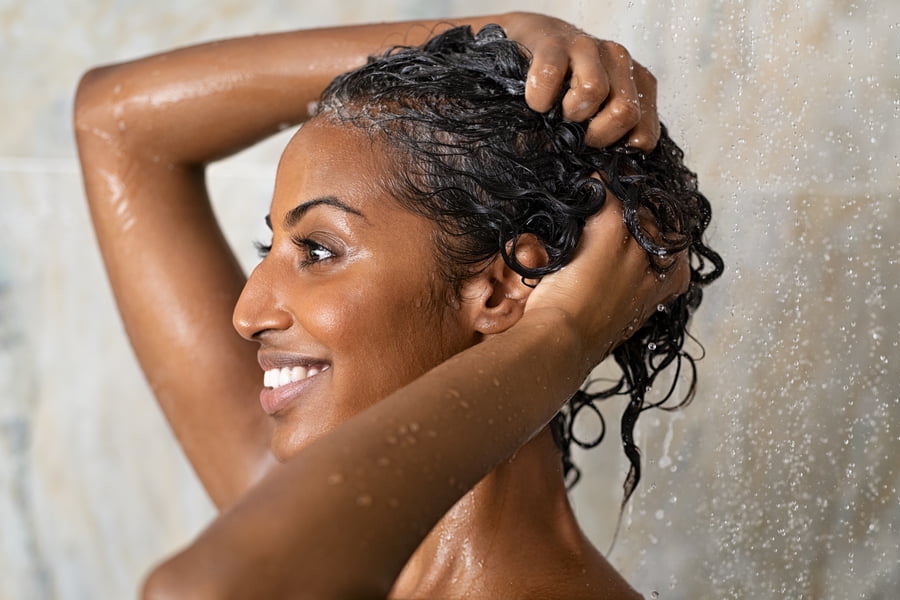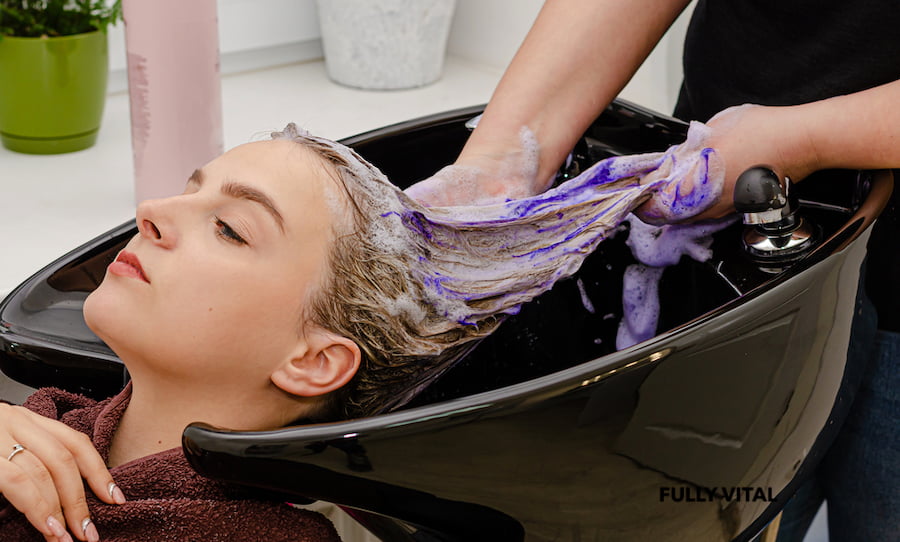
Side Effects of Rice Water on Hair in 2023
Rice water, a popular DIY hair treatment, has been praised for its ability to promote hair growth, improve hair health, and provide numerous benefits.
However, it is essential to consider potential drawbacks and side effects before embarking on a rice water treatment.
In this blog post, we’ll unveil the hidden side effects of rice water on hair and provide guidance on how to use it safely and effectively, ensuring the best possible outcome for your hair.
So, is rice water the miracle natural hair treatment it’s touted to be, or are there hidden dangers lurking beneath its surface?
Read on to discover the potential side effects of rice water on hair, how to prepare it properly, and explore alternative natural hair care options to help you make an informed decision.
Short Summary
-
It is important to be aware of the potential side effects of rice water on hair before using it.
-
Proper preparation and dilution are necessary for optimal results, as well as monitoring progress and adjusting application frequency according to your hair’s needs.
-
Alternatives such as aloe vera or coconut milk can offer beneficial properties without the potential side effects of rice water.
The Hidden Side Effects of Rice Water on Hair

I LOVE MY HAIR NOW
FullyVital hair serum and hair vitamins made tremendous improvements in my hair. I truly love my hair now.
Meg S.,
While rice water can indeed provide various benefits for hair growth and health, it’s important to be aware of the potential side effects that may accompany its use.
Excessive protein buildup, dryness of the scalp, and an unpleasant scent have been reported as potential side effects associated with rice water treatment on hair.
Moreover, rice water, including that made from brown rice, has the potential to contain arsenic, which is often absorbed from insecticides used on cotton fields where rice is cultivated.
To make the most out of your rice water hair care regimen, it’s crucial to consider your hair’s condition, porosity, texture, and type before using rice water hair products.
If you experience any adverse reactions, it may be beneficial to explore other options and alternative hair treatments to harness the full potential without the side effects of rice water on hair.
Protein Overload Dilemma
Rice water’s high protein content can be a double-edged sword, especially for those with low porosity hair.
Porosity is a measure of how readily water and other substances can enter the hair shaft and affect the hair roots.
Those with low porosity hair are more likely to experience protein overload from rice water, as protein can accumulate on the hair shaft and result in dryness and brittleness.
The protein overload dilemma is a significant concern for individuals with low porosity hair, as excess protein in rice water can cause dryness and brittle hair if used in excess, especially when using a rice water rinse.
Moreover, this can impede the penetration of other hair treatments into the follicles, thus making them ineffective.
Dry Scalp and Irritation
Overusing rice water on the scalp can lead to dry scalp and irritation, particularly for those with sensitive skin.
Dry, flaky scalp with redness and rashes have been reported as potential side effects of using rice water on the scalp.
The protein content of rice water could be a contributing factor to scalp dryness.
To avoid this issue, it is essential to limit rice water use to a suitable frequency and monitor your hair and scalp’s reaction.
Paying attention to these signs can help you prevent the worsening of dry hair or scalp conditions and any potential irritation caused by rice water.
Unpleasant Odor and Stiffness
The use of fermented rice water on hair may result in a strong, pungent odor and hair stiffness.
The sour smell can be off-putting, but don’t worry – there’s a solution.
Adding a few drops of essential oil to the homemade rice water mixture can improve the aroma and make it more pleasant to use.
Incorporating essential oils into rice water not only enhances its scent, but also provides additional benefits such as promoting hair growth and imparting luster and shine to hair.
By properly preparing your rice water mixture and adding essential oils, you can enjoy the benefits of rice water without the unpleasant odor and stiffness.
The Importance of Proper Rice Water Preparation
Preparing rice water correctly is essential to guarantee its safety and effectiveness for hair care.
Incorrect preparation can alter the nutrient concentration and pH level of the rice water, which can consequently affect its ability to strengthen hair, encourage growth, and improve texture.
Additionally, improperly stored or old rice water may result in fungal infections of the scalp, leading to dandruff, itchiness, and even hair loss.
In this section, we’ll discuss how to prepare rice water for hair correctly to avoid fungal infections, ensure proper dilution, and enhance its scent with essential oils.
By following these guidelines, you can maximize rice water’s benefits for your hair as a protein treatment while minimizing the risk of potential side effects.
Avoiding Fungal Infections
Properly preparing rice water is crucial in preventing the growth of fungi and bacteria, which can cause scalp infections and hair loss.
Maintaining skin hygiene, washing hands regularly, and abstaining from sharing personal care items are some of the ways to prevent fungal infections that can affect hair follicles.
Keeping the skin clean and dry is beneficial in lowering the chances of fungal infections, as it hinders the development of fungi and bacteria.
Regular handwashing also helps to decrease the chances of fungal infections by hindering the transmission of bacteria and fungi.
Dilution and Temperature
Diluting rice water with water is essential when using it for hair care, as it helps adjust the concentration according to the hair’s needs.
Fermented rice water is quite potent and can be too strong for the hair if not diluted properly.
To dilute rice water for hair, it is recommended to mix it with an equal amount of tap water.
Temperature is also crucial when using rice water for hair, as it can guarantee that the rice water is neither too hot nor too cold for the hair.
Using a thermometer is the most reliable way to measure the temperature of rice water.
By ensuring the right dilution and temperature, you can enhance the safety and effectiveness of rice water for your hair cuticle.
Adding Essential Oils
Incorporating essential oils into rice water can provide multiple benefits, including enhancing its brightening effects, promoting hair growth, and imparting luster and shine to hair.
Additionally, adding essential oils can improve the aroma of rice water, making it more pleasant to use.
To add essential oils to rice water, it is advised to do so before applying it to the hair. It is suggested to add 2-3 drops of essential oil per cup of rice water.
However, it is imperative to be cognizant of any allergies or sensitivities to essential oils before adding them to rice water and to utilize only pure, therapeutic grade essential oils.
These techniques above can reduce the risk of side effects of rice water on hair.
How to Use Rice Water Safely and Effectively
Following the guidelines for application frequency, rinsing, and monitoring progress can help you make the most of rice water benefits for your hair.
It is crucial to ensure that you are using rice water safely and effectively, avoiding potential pitfalls like dry scalp, protein overload, and unpleasant odors.
In this section, we will provide tips on:
-
How to apply rice water to your hair
-
How to rinse and wash rice water from your hair
-
How to monitor your progress to find the ideal balance for your hair type
By adhering to these recommendations, you can enhance the benefits of rice water treatment while minimizing the risk of side effects.
Application Frequency
One of the most frequent errors individuals make when utilizing rice water on their hair is leaving it on for an extended duration, sometimes even the whole night.
To avoid potential side effects like dry scalp and protein overload, it is recommended to limit rice water use to two applications per week and monitor your hair and scalp’s reaction.
By using rice water no more than twice weekly, you can prevent potential adverse effects and ensure that your hair and scalp remain healthy and nourished.
Adjusting your application frequency based on your hair’s needs and condition can help you find the ideal balance for your hair type.
Rinsing and Washing
Properly rinsing and washing rice water from your hair is essential to prevent:
-
color alteration
-
dry scalp
-
irritation
-
unpleasant odor
-
stiffness
Rinsing after using white rice water helps to prevent over-processing and drying out the hair and scalp, thus preserving the health of the hair.
To rinse out rice water from your hair, follow these steps:
-
Use lukewarm water to wet your hair.
-
Apply a mild shampoo and massage it into your scalp and hair.
-
Rinse your hair thoroughly to remove all the rice water.
-
Repeat the shampooing and rinsing process if necessary.
-
Ensure that you thoroughly rinse and wash rice water from your hair to achieve the best possible results and avoid potential side effects.
Monitoring Progress
Keeping track of your hair’s condition and adjusting rice water usage accordingly is essential to finding the ideal balance for your hair type.
Monitoring progress when using rice water on hair is beneficial for assessing its effectiveness and gauging the hair’s reaction to it.
Take note of any changes in the texture, strength, and shine of your hair, as well as any scalp irritation or dryness.
By closely observing your hair’s response to rice water and adjusting your usage accordingly, you can optimize your hair care routine and ensure the best possible outcome for your hair’s health and appearance and avoid the side effects of rice water on hair.
Rice Water Alternatives for Hair Care
If you find that rice water is not suitable for your hair or you experience any of the side effects mentioned earlier, there are alternative natural hair care options available.
Aloe vera and coconut milk are two effective hair care options that offer numerous benefits without the potential side effects of rice water.
In this section, we will explore the advantages of using aloe vera and coconut milk for hair care, providing you with alternative solutions that can help you achieve healthy, nourished, and beautiful hair.
Aloe Vera
Aloe vera is a versatile alternative to rice water, providing hydration, promoting hair growth, and soothing the scalp.
Aloe vera contains vitamins A, C, and E, which facilitate cell regeneration and foster healthy cell growth and lustrous hair.
Additionally, it contains enzymes and amino acids that can aid in the repair of damaged hair strands and promote hair growth.
Aloe vera has multiple benefits for the hair and scalp, including:
-
Soothing an itchy scalp and reducing dandruff due to its anti-inflammatory and antifungal properties
-
Acting as a natural humectant, drawing moisture into the hair fiber and keeping it hydrated
-
Stimulating hair growth
With its numerous benefits, aloe vera is a valuable alternative for hair care and hair roots, especially for those who may experience side effects from using rice water.
Coconut Milk
Coconut milk is another effective hair treatment option, offering the following benefits for hair health:
-
Deep conditioning
-
Nourishment
-
Protection against damage
-
Moisturizes hair
-
Nourishes and safeguards damaged strands from breakage
-
Encourages hair growth
-
Boosts blood circulation in the scalp
Coconut milk can be utilized as a leave-in conditioner and is less oily than coconut oil.
In addition to its conditioning properties, coconut milk can also be used as a shampoo or conditioner, or mixed with other ingredients to create a nourishing hair mask.
By incorporating coconut milk into your hair care routine, you can enjoy the benefits of a natural and effective hair care solution without the potential drawbacks of rice water.
Summary
Rice water, while praised for its hair care benefits, can also present potential side effects such as protein overload, dry scalp, and unpleasant odor.
To make the most of rice water’s advantages, it’s crucial to prepare it properly, use it in moderation, and monitor your hair’s response to the treatment.
By following the guidelines provided in this blog post, you can safely and effectively harness the benefits of rice water for your hair.
However, if you discover that rice water is not suitable for your hair or experience any side effects, do not hesitate to explore alternative natural hair care options like aloe vera and coconut milk.
By choosing the right hair care solution for your individual needs, you can ensure a healthy, nourished, and beautiful mane. While companies are selling hair serums or overnight hair mask with rice water, most of these have unproven efficacy.
Frequently Asked Questions
Who shouldn't use rice water for hair?
Individuals with low porosity hair should avoid using rice water as it can stick to the hair and cause further damage. This can lead to side effects of rice water on hair.
Can rice water grow damaged hair?
Rice water is packed with vitamins and minerals that strengthen hair follicles, improve density, and make hair look healthy and shiny.
Historical examples and anecdotal evidence suggest it can also help repair damaged hair by penetrating it from the inside out and even protect against future damage.
Making your own rice water is easy - all you need is some rice and water!
Does rice water really thicken hair?
Yes, rice water can thicken hair. It coats the hair shaft to add strength and create a protective layer that gives the appearance of thicker, fuller strands.
However, it does not necessarily boost growth.
How to make rice water?
To make rice water, start by taking 12 cups of uncooked rice, rinsing it thoroughly and placing it in a bowl with 2–3 cups of water.
Leave to soak for 30 minutes, then strain the rice water into a clean bowl.
Funnel the strained rice into a spray bottle and refrigerate until ready to use.
What are the potential side effects of using rice water on hair?
Potential side effects of using rice water on hair include protein buildup, dryness of the scalp, and an unpleasant scent.
Rice water is only one hair treatment, its best to consider other hair treatments without the side effects of rice water on hair.







